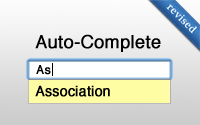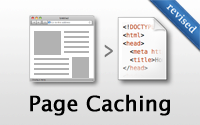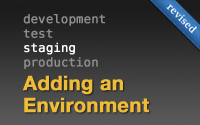Categories
- Active Record
- Active Resource
- Active Support
- Administration
- Ajax
- APIs
- Authentication
- Authorization
- Background Jobs
- Caching
- Code Walkthrough
- Controllers
- Debugging
- Deployment
- eCommerce
- Forms
- Mailing
- Models
- Performance
- Plugins
- Production
- Rack
- Rails 2.0
- Rails 2.1
- Rails 2.2
- Rails 2.3
- Rails 3.0
- Rails 3.1
- Rails 3.2
- Rails 4.0
- Refactoring
- Routing
- Search
- Security
- Testing
- Tools
- Views
Applied Filters:
revised x
Cropping Images (revised)
Allow users to interactively crop uploaded images using Jcrop and Carrierwave. Includes a live preview that shows the resulting image.
(11 minutes)
Auto-Complete Association (revised)
A select menu is often used for setting a belongs_to association, but you should also consider using a text field with autocomple. Here I use jQuery UI and show two different solutions: client side and server side.
(9 minutes)
Page Caching (revised)
Page caching is an efficient way to cache full content to be served by the front-end web server. Learn how to deal with pagination, expiration with sweepers, and user-specific content in this episode.
(9 minutes)
Rails Metal (revised)
Rails metal may have been removed in Rails 3, but it is possible to bypass the entire Rails stack through middleware as shown in this episode.
(6 minutes)
Adding an Environment (revised)
Rails comes with three environments: development, test, and production, but it is easy to add your own. Here I show how to add a separate staging environment and how to start up Rails under this.
(4 minutes)
Advanced Search Form (revised)
It is often best to use a GET request when submitting a search form, however if it is an advanced search form with a lot of fields then this may not be ideal. Here I show how to create a search resource to handle this.
(6 minutes)
Cron in Ruby (revised)
Cron is a common solution for recurring jobs, but it has a confusing syntax. In this episode I show you how to use Whenever to create cron jobs using Ruby. Some alternative scheduling solutions are also mentioned.
(6 minutes)
Thinking Sphinx (revised)
Sphinx is a full-text search engine for use with MySQL or PostgreSQL. Learn how to add Thinking Sphinx by defining an index on your model and searching with various options.
(10 minutes)
Factories not Fixtures (revised)
Fixtures are external dependencies which can make tests brittle and difficult to read. In this episode I show how to use Factory Girl to generate the needed records directly in the tests.
(9 minutes)
Exception Notifications (revised)
Few things are worse than seeing a "Something went wrong" 500 error on your production application. Here I show how to be notified when this happens using exception_notification and mention several other alternatives.
(6 minutes)










